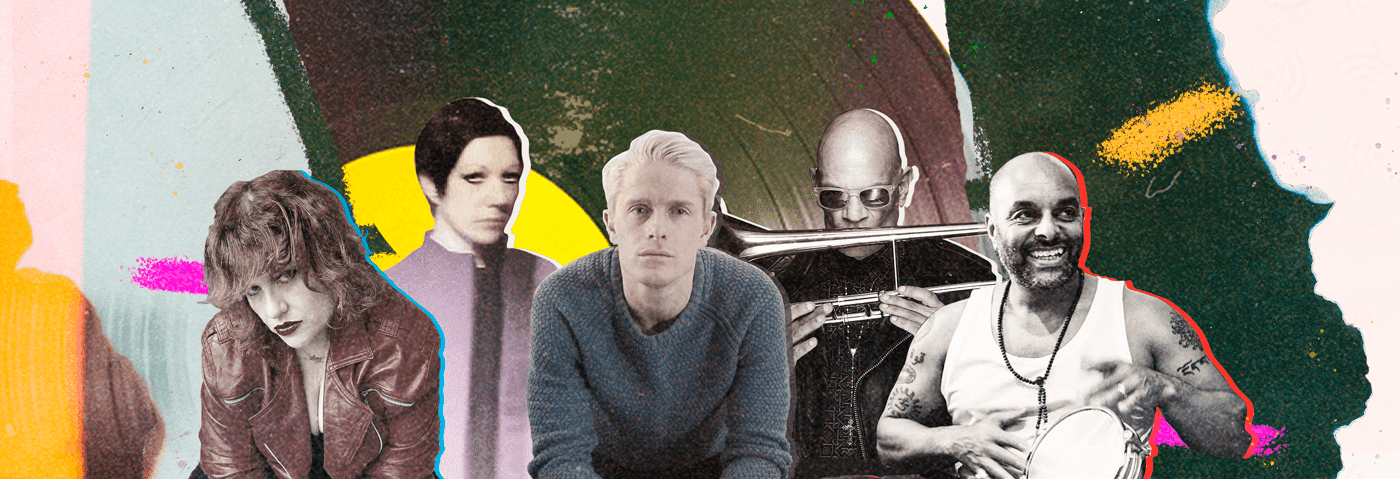There’s been plenty of discourse around the impact of digital technology on DJs and producers, but what about musicians and vocalists?
The digital revolution affected every facet of the dance music industry and we are still living through the effects. Obviously, DJs and producers have been at the very centre of this process, and it seems every week there’s another think-piece about how things like streaming, DJ controllers or digital formats have changed the DJs role. However, DJs and producers are just part of the dance music eco-system and the impact of digital advances on musicians and singers is perhaps less clear cut.
Musicians and singers have to navigate a world entirely different from those of their predecessors. Quality vocal sample packs are easily available, as is the ability to warp them to fit almost any style or tempo. Software instrument emulations are constantly improving too. And you can now hum a melody into an app which will then analyse and reproduce it played by a synthesised trumpet or a guitar, or even build a whole song around it. There are AIs, registered with royalty collection agencies, composing music for films and adverts. And the killer-combo of high-quality accessible recording and composition software, together with the ease of digital distribution has fundamentally altered how music is produced and circulated. So what has been the effects of this tornado of change on musicians and singers working in dance music?
Amy Douglas
Songwriter and vocalist Amy Douglas (Classic Music Company, Horse Meat Disco), who sang on last year’s huge Tim Wagner produced and Crooked Man remixed ‘Never Saw It Coming’:
Sample Packs and the like haven’t really affected me as a singer. File sharing and streaming affect sales and that’s not been great for anyone, lest the ability to use streaming services as another method of promoting the work and building an audience.

As a vocalist who works with people from all over the world without the ability to move wav.s around, well I’d have… not a whole lot going on! My role as a singer has changed in EVERY way. I went from heading hard rock bands, and doing all of my writing and performing in a purely organic way. Now while I still write my songs on piano, my business is in supplying great songs and great vocals for the world’s best in the world of dance music. The ability to convert music into a wav. and send it back and forth is priceless for me and my work.
Lack of Afro
The connectivity of digital technology and how it facilities creativity and collaboration also appeals to musician, songwriter and producer Adam Gibbons who records as Lack of Afro:
The ability to send music files to anyone in the world, at any time and virtually instantaneously would not be possible without the advancement of digital technology. It enables me to live by the sea here in Devon, write & produce in my studio and then collaborate with other musicians, no matter where in the world they are. I’ve taken advantage of that way of working, collaborating with various vocalists, musicians & labels for Lack of Afro albums, remixes, productions as well as sample packs too. It’s amazing being able to work that way, and was something that pre-digital producers could only dream about. In short, without it I’d have to change my whole approach, lifestyle, and uproot my family to live closer to labels & studios. It would be a huge upheaval.
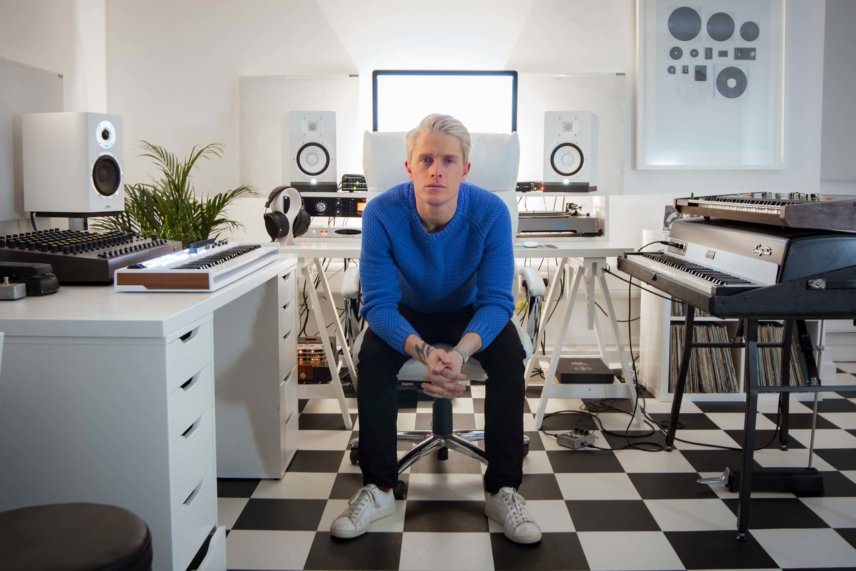
Before the advent of digital recording (i.e. back in the days of tape), you would have to be in the same room or studio for these collaborations to happen, and geographical limitations would prevent any finessing of the track after the event. Whilst it’s always great to get in a room with talented musicians and work on ideas together, the flexibility of sending files back and forth means you can fully immerse yourself in the work within the comforts of your own studio (and without any time or budgetary constraints that working at a commercial studio would entail).
the major difference between the old record company model and the new DIY models is that no one invests in you other than your fans.
Billie Ray Martin
Billie Ray Martin was the vocalist with classic rave-era outfit Electribe 101, supplied vocals for S Express, her 1995 ‘Your Loving Arms’ was a huge worldwide #1, she’s released seven albums and in 2008 formed a new band The Opiates. Billie also runs her own record label, Disco Activisto, DJs and has produced her own vocal sample CD collection. For her, the role of the singer is unchanging, but the world vocalists operate in remains in a constant state of flux. For many artists, this has meant grappling with decreasing sales and changing revenue streams, as well as successfully navigating the new promotion and distribution models:
Has my role changed? As a singer no. As a human being and a musician surviving and operating out there in the world of music and its surrounding business models: yes. The revenue streams have shifted… At first, the whole area of digital sales diminished for me as some download income had shifted to streaming but it kind of balanced out. Now I get a good amount from sales and a reasonable amount from streaming but not enough by far.
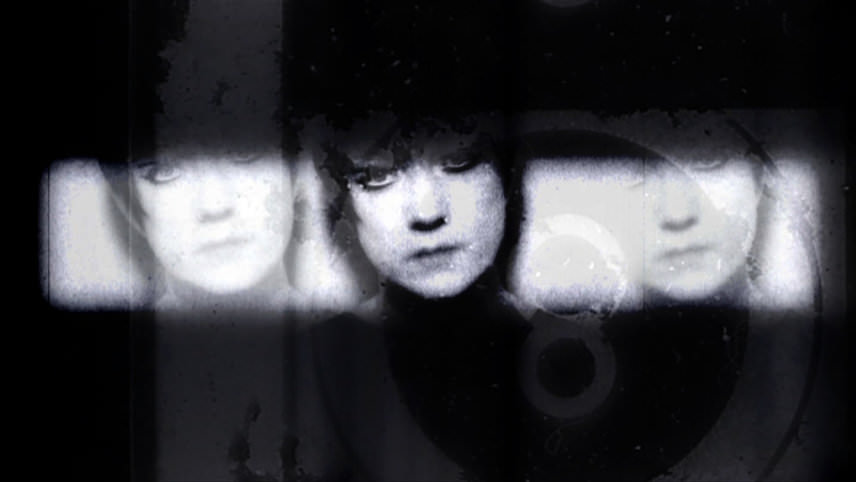
My sample pack both on Beatport and on my Bandcamp store sold well and I’m sometimes very happy to see what people did with the vocals. (My favourite is a track called ‘Billie Ray Martin’ by Uncle Peanut).
I think the more profound change is in the area of completely new ways to get your music out there. The model: record company or label, then radio, video etc. is no more for most artists. Now you release your own music and the challenge is how to get it in front of people in an arena where the attention span is about a second.
The other thing that changed is that you release a few singles on Spotify and you promote these single songs until you release the album. You get a lot more mileage out of an album release that way. I’m still exploring the best way to do that in future.
Speaking just in my case, I get by at the moment but I need to do crowdfunding to finance new projects as the major difference between the old record company model and the new DIY models is that no one invests in you other than your fans.
Ashley Slater
Ashley Slater is best known as the frontman (vocals and trombone) in Fatboy Slim collaboration Freak Power. Ashley also works as a session player, top line composer/songwriter and all-round musician and producer for hire and for him, digital technology has changed, but has reinvigorated his session work.
I love it because I’m working with people from literally all over the world. If you’re smart and an early adopter, which I was – with my first small advance I bought an Akai S900 sampler, Atari ST, a little keyboard – you get a home set-up and you will work forever.
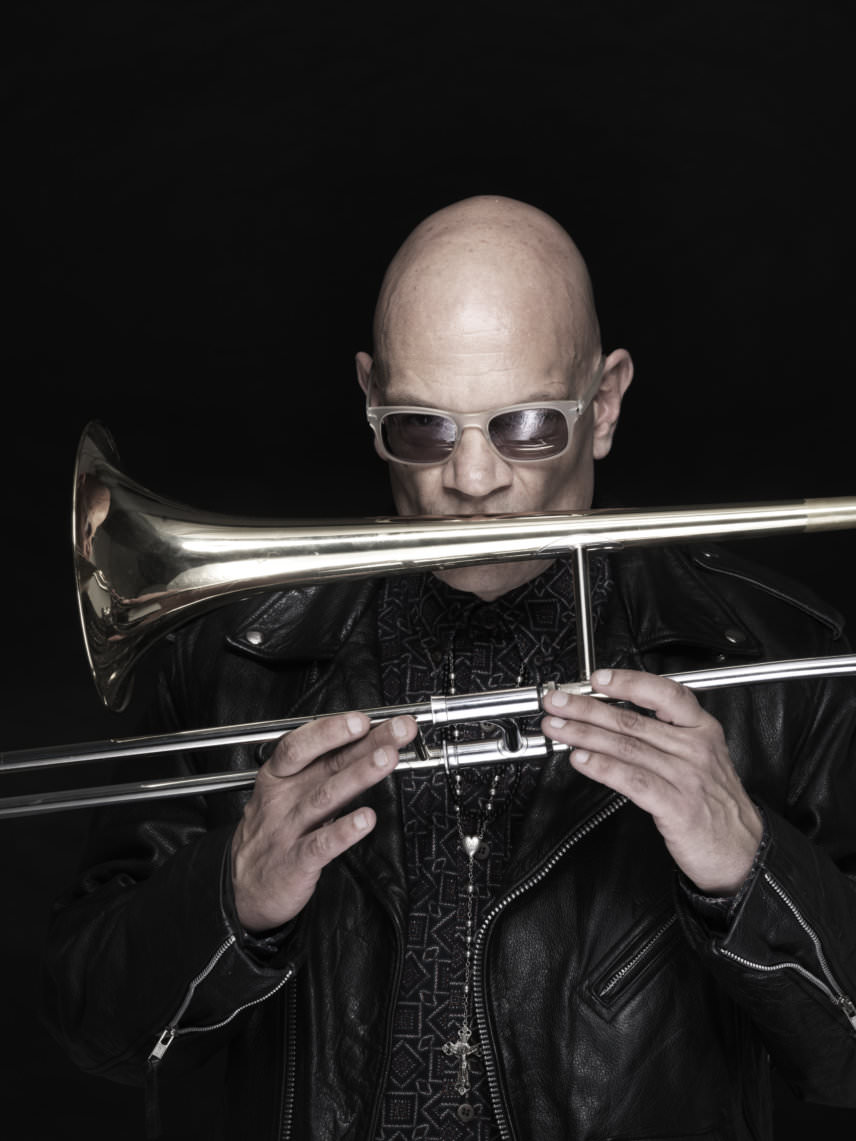
It’s been directly responsible for a change in my earnings. Friday, I went into a recording studio and did a recording session on the trombone – that was the first time I’ve done that for three years. It wasn’t the first session I’ve done for three years, it was the first studio session. I do around one recording session a week – I get an email with a request for session work, ‘Can you record this’ – and you earn. And I do the same thing as a top line writer and featured vocalist, and again once a week or so I get a request from somebody on email, ‘Can you record this?’ And I say ‘Sure mate, I want a little of the publishing and my session fee’; you write the song, send it to them; I love it. Because I’m over sitting in a white van going to gigs and sitting on a train going to a recording studio. This way I can be in control of what I’m doing.
Shovell
Shovell, percussionist for, amongst many others, Jamiroquai, Nightmares On Wax, Soul II Soul, Chemical Brothers and Defected Records is another musician who can provide a thorough overview of how the dance music industry has changed for working musicians over the last couple of decades:
Twenty or so years ago, there were a lot more music venues around catering for bands and live music, so a gig or two was always available. Today I would say not so much. The rise of the DJ, or someone’s playlist, often does that job now in venues. However, if you practice hard, play for the pure joy of playing music and are fortunate to have carved out a musical niche for yourself, work as a musician is available.
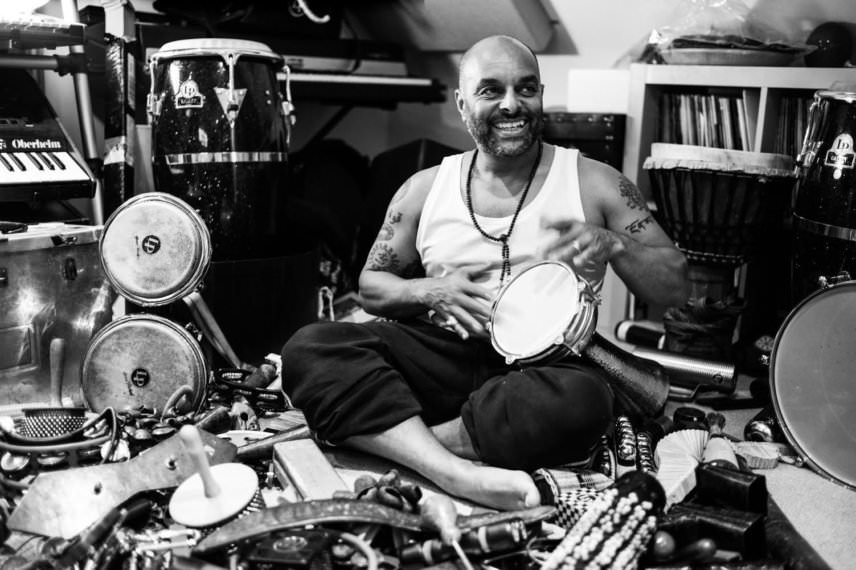
Photo: Gavin Mills
Technology has brought a quantum shift to the music industry. The large recording studios that were so necessary for recording are now less so. The speed of sending musical files, editing, and the ability to record in one part of the world, and send the recording to another part of the globe and not actually be in the same room, or time zone as the artists your recording with, was somewhat staggering in the beginning but is commonplace now.
The earnings from said recordings have dropped considerably since the advent of iTunes and Spotify etc. However, the revenue as a musician can be made by live shows and touring. Sample packs and such like have played an important part too. The vast amount of home producers who aren’t able to record live musicians, be that for economic reasons or the size of their space has caused an underground scene to invent itself, where the recordings of ‘bedroom’ studios, and / or laptops, suits the headphone and Bluetooth music listeners rather than the big stereo systems in peoples homes from the past.
The fact that the reach of music has become larger, quicker and easier on a global scale, is a phenomenal thing, and ultimately increases ones potential audience in a way that was impossible to comprehend just a few years ago, giving greater access to both new music and music from yesteryear. This ultimately has to be a great thing.
Whilst the entire industry felt the effects of the move from physical to digital formats this was accompanied in the dance music world by rapid growth in home DJs and home producers. The digital revolution didn’t facilitate a similar growth in musicians and session players as they are roles that can’t be accessed by digital short cuts.
Instead, although singers and musicians were hit hard by the digital revolution – studios closed, sessions became less frequent, session fees dropped whilst royalties from physical formats nearly disappeared – this didn’t happen in isolation. Simultaneously, digital technology has provided many more opportunities for musicians and singers working in the dance scene. There’s been a shift away from lucrative studio work toward autonomy and home set-ups and more opportunities for collaboration. But working musicians are having to be more flexible and resourceful than ever before in how they approach the continually changing landscape, and are often doing it without the management and organisational structures that the previous generation benefitted from.
Perhaps the biggest challenge for contemporary recording artists, musicians and vocalists is getting their work noticed and heard in a world where there is continued growth in the sheer quantity of available music, a trend that shows no sign of abating any time soon.
